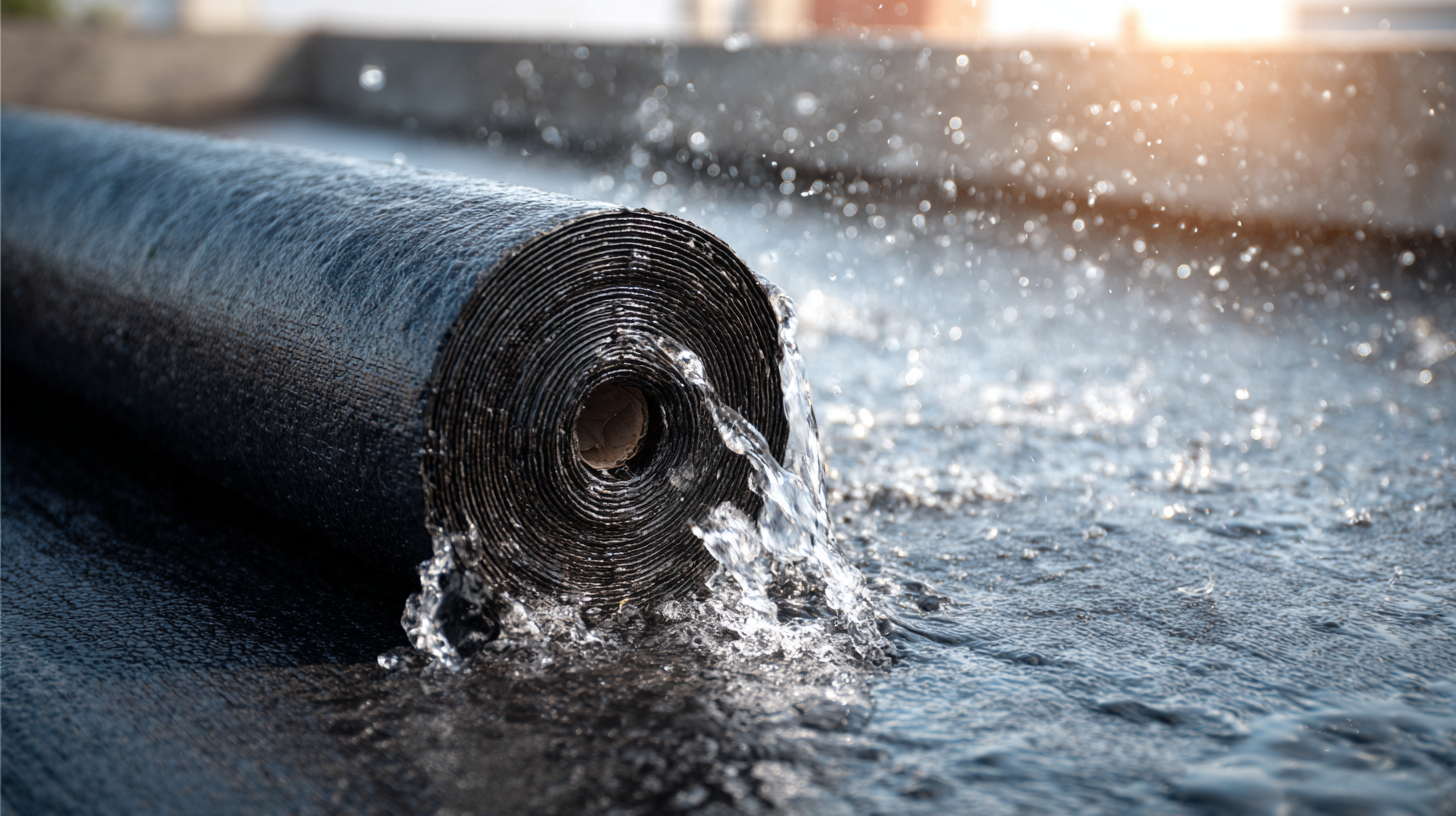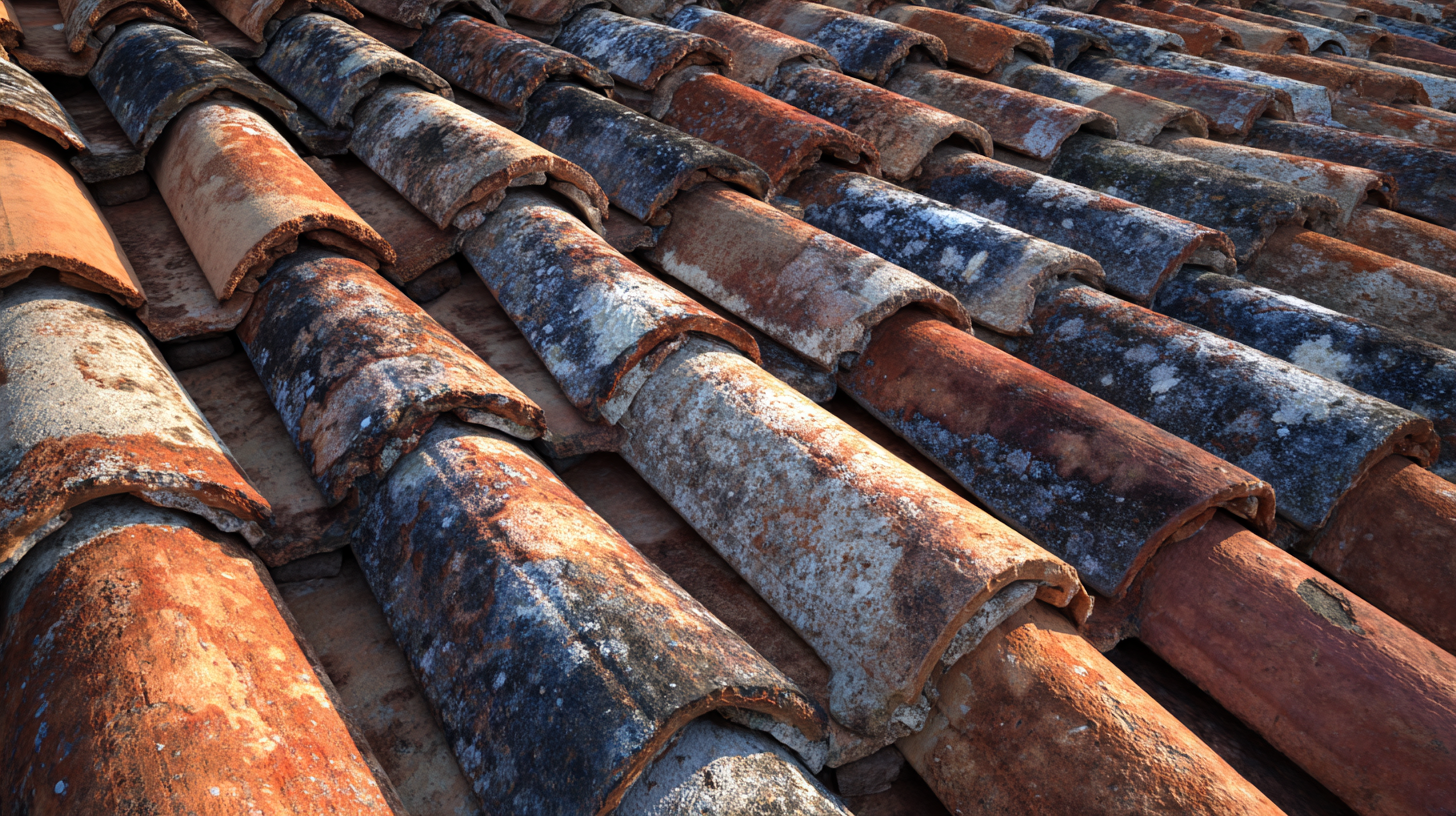What is the Importance of Roof Waterproofing Material in Preventing Structural Damage
Table of Contents
- Understanding Roof Waterproofing: The Basics and Benefits
- Types of Waterproofing Materials: Which is Right for Your Roof?
- How Waterproofing Prevents Structural Damage Over Time
- Key Signs Your Roof Needs Waterproofing Solutions
- The Cost-Effectiveness of Investing in Roof Waterproofing
- Tips for Maintaining Your Roof's Waterproofing Integrity
- FAQS
- Conclusion
- Related Posts
In residential and commercial construction, the significance of Roof Waterproofing Material cannot be overstated, as it serves as the first line of defense against moisture intrusion, which can lead to severe structural damage over time. Effective waterproofing not only protects the integrity of roofs but also prolongs the lifespan of the entire building structure, preventing costly repairs and ensuring safety for occupants. As a leading manufacturer, SHANGHAI QIXUAN CHEMTECH CO., LTD. specializes in producing specialty chemicals, including innovative additives that enhance the performance and durability of roofing materials. Our commitment to quality and excellence in the field of construction materials ensures that our clients can trust in the efficacy of our products. By understanding the critical role of Roof Waterproofing Material, both contractors and homeowners can make informed decisions that safeguard their investments and support long-lasting protection against the elements.

Understanding Roof Waterproofing: The Basics and Benefits
When it comes to maintaining the integrity of a building, roof waterproofing is a fundamental aspect that cannot be overlooked. Understanding the basics of roof waterproofing materials is essential for homeowners and construction professionals alike. The primary purpose of these materials is to create a barrier against water infiltration, which can lead to significant structural damage over time. Effective waterproofing not only protects the roof itself but also safeguards the underlying structures, preventing costly repairs and extending the lifespan of the building.
One popular choice for waterproofing is butyl rubber, known for its durability and flexibility. This material is particularly beneficial for rooftop installations, providing a robust solution that withstands the elements. It is essential for contractors to be familiar with such materials to ensure that they offer the best options to clients, thereby enhancing their service offerings and profitability. By investing in high-quality waterproofing solutions, both homeowners and contractors can enjoy the long-term benefits of reduced maintenance costs and increased property value.
What is the Importance of Roof Waterproofing Material in Preventing Structural Damage
| Material Type | Benefits | Lifespan (Years) | Cost per Square Foot |
|---|---|---|---|
| Rubber Membrane | Flexible, resistant to UV rays, easy to install | 20 | $3.50 |
| Bituminous Membrane | Durable, excellent waterproofing, can be self-adhesive | 15 | $2.50 |
| Liquid Waterproofing | Seamless application, great for irregular shapes | 10 | $5.00 |
| Thermal Plastic Polyolefin (TPO) | Energy-efficient, heat-reflective, lightweight | 25 | $4.00 |
| Spray Foam | Insulating properties, quick installation, seamless | 30 | $6.00 |
Types of Waterproofing Materials: Which is Right for Your Roof?
When considering roof waterproofing, it's crucial to understand the various materials available and their long-term benefits. Recent studies indicate that the waterproofing membrane market alone is projected to exceed USD 34 billion by 2024, continuing to grow at an impressive CAGR of 6.7% through 2034. This growth is largely driven by the increasing awareness of the importance of effective waterproofing in preventing structural damage and enhancing building longevity.
Among the different types of waterproofing materials, options like liquid membranes, sheet membranes, and vegetative roofs offer unique advantages. For instance, vegetative roofs provide insulation and reduce runoff but may present challenges such as maintenance and proper installation techniques. A well-researched guide to waterproofing materials can aid in choosing the right solution for your roof.
Tips: Always assess the specific conditions of your roof and local climate when selecting waterproofing materials. Additionally, engaging with professional contractors who specialize in waterproofing can ensure that your installation is done correctly from the start, preventing costly repairs in the future. Regular inspections and maintenance of your waterproofing solutions can also significantly extend their lifespan and effectiveness.
How Waterproofing Prevents Structural Damage Over Time
Waterproofing is a crucial aspect of building maintenance that significantly contributes to preventing structural damage over time. When roofs are inadequately protected from water infiltration, they can develop leaks that lead to extensive decay of roofing materials and underlying structures. Over the years, this can cause wood rot, mold growth, and even compromise the integrity of beams and walls. By using high-quality waterproofing materials, homeowners can prolong the life of their roofs and safeguard against costly repairs resulting from water damage.
The growing emphasis on waterproofing technologies is reflected in market trends, such as the stone waterproof treatment market, which is projected to increase from $14.52 million in 2024 to $20.96 million by 2032, with a compound annual growth rate of 4.82%. This growth indicates a rising awareness of the importance of protecting structures from water intrusion. Implementing effective waterproofing strategies not only enhances the durability of buildings but also improves their energy efficiency and overall value. Properly applied waterproofing measures can save property owners significant amounts in maintenance and restoration costs, highlighting their critical role in the longevity of any structure.
Key Signs Your Roof Needs Waterproofing Solutions
Waterproofing your roof is essential in protecting your home from structural damage caused by leaks and water intrusion. Key signs that your roof requires waterproofing solutions include visible water stains on ceilings or walls, mold growth, and curling or cracked shingles. Ignoring these signs can lead to costly repairs and potentially compromise the structural integrity of your home.
In recent years, the construction industry has seen a shift towards more sustainable practices, such as utilizing materials from end-of-life tires. With the global production of around 2 billion tires annually, this innovative approach helps reduce landfill waste while providing effective waterproofing solutions. Products derived from recycled tires can enhance the durability and functionality of roofing materials, making them a valuable asset for homeowners.
Tips: Regular inspections of your roof can help identify early signs of leaks. Additionally, consider investing in specialty chemicals designed for waterproofing applications, as these can significantly improve the longevity of your roofing system. Lastly, ensure that your roofing contractor is aware of sustainable materials that can enhance the waterproofing effectiveness of your home.
The Cost-Effectiveness of Investing in Roof Waterproofing
Investing in roof waterproofing is crucial for homeowners looking to prevent structural damage and maintain the integrity of their property. A quality waterproofing system not only safeguards against leaks but can also contribute to long-term cost savings. The upfront costs associated with waterproofing materials may seem significant, but the potential expenses incurred due to water damage, mold growth, and foundational issues far outweigh these initial investments. By choosing the right waterproofing membrane—be it liquid applied silicone, polyurethane, or cementitious options—property owners can enhance the durability of their roofs and prolong their lifespan.

Moreover, the growing emphasis on sustainable energy solutions, such as solar panel installations on waterproofed roofs, offers a dual benefit. Homeowners can capitalize on renewable energy while ensuring their roofs are protected against the elements. This synergy not only maximizes energy efficiency but also increases property value. In areas where energy costs are high, the return on investment for solar energy can become more appealing, especially if the roof is secure and well-maintained. As the market for waterproofing materials continues to evolve, embracing these solutions can be a financially savvy decision for homeowners.
Tips for Maintaining Your Roof's Waterproofing Integrity
Maintaining the waterproofing integrity of your roof is crucial in preventing structural damage, as even minor leaks can lead to significant issues over time. According to a report from the National Roofing Contractors Association, approximately 80% of all roof leaks originate from inadequate waterproofing measures and poor maintenance. Therefore, implementing regular inspections and maintenance routines is essential to ensure your roof remains effectively sealed against water intrusion.

To maintain your roof's waterproofing integrity, start by performing routine inspections at least twice a year, particularly after severe weather events. Look for signs of wear, such as cracks, bubbling, or missing shingles. Additionally, it’s vital to keep gutters and downspouts clear to prevent water accumulation that could compromise your roof’s waterproofing layers. A study by the National Association of Home Builders indicates that properly maintained roofs can last 20% longer than those that are neglected. Investing in quality waterproofing materials and routine maintenance not only extends the life of your roof but also protects your entire structure from costly water damage.
FAQS
: The main purpose of roof waterproofing materials is to create a barrier against water infiltration, protecting the roof and underlying structures from potential damage.
Key signs include visible water stains on ceilings or walls, mold growth, and curling or cracked shingles.
Ignoring waterproofing issues can lead to costly repairs and may compromise the structural integrity of the home.
Butyl rubber is a popular waterproofing material known for its durability and flexibility, making it an effective solution for rooftop installations.
Utilizing materials from end-of-life tires helps reduce landfill waste and provides effective waterproofing solutions, enhancing the durability of roofing materials.
By investing in high-quality waterproofing solutions and regularly inspecting their roofs, homeowners can reduce maintenance costs and increase property value.
Specialty chemicals designed for waterproofing can significantly improve the longevity and effectiveness of the roofing system.
Contractors can enhance their service offerings by becoming familiar with various waterproofing materials, including sustainable options, to better serve clients.
Homeowners should conduct regular inspections and address any signs of leaks or water intrusion immediately to prevent further damage.
Knowledge of sustainable materials allows contractors to offer better options to clients, improving service offerings and potentially increasing profitability.
Conclusion
Roof waterproofing material plays a crucial role in safeguarding the structural integrity of buildings. By understanding the basics and benefits of roof waterproofing, property owners can make informed decisions about which types of materials are best suited for their roofs. Various waterproofing materials, such as those produced by SHANGHAI QIXUAN CHEMTECH CO., LTD., offer diverse options for effective protection against leaks and moisture infiltration.
Investing in roof waterproofing not only prevents long-term structural damage but also enhances cost-effectiveness by minimizing repair expenses over time. Recognizing key signs that indicate a roof requires waterproofing solutions is essential for maintaining the roof's integrity. Ultimately, proper maintenance of roof waterproofing materials ensures longevity and durability, protecting the overall value of the property.
Related Posts
-

Addressing the Challenges of Cas 68213-23-0: A Comprehensive Analysis of Common Issues
-

Assessing the Market Leaders: A Comparative Study of the Top Organic Synthesis Intermediates in 2023
-

7 Essential Tips for Sourcing the Best Cab 35 for Your Business Needs
-

5 Top Benefits of Using the Best Anionic And Products in Today's Market
-

Understanding the Technical Specifications of the Best AntiStripping Agent and How to Use It Effectively
-

12 Best Binders for Maximum Efficiency in Document Management

